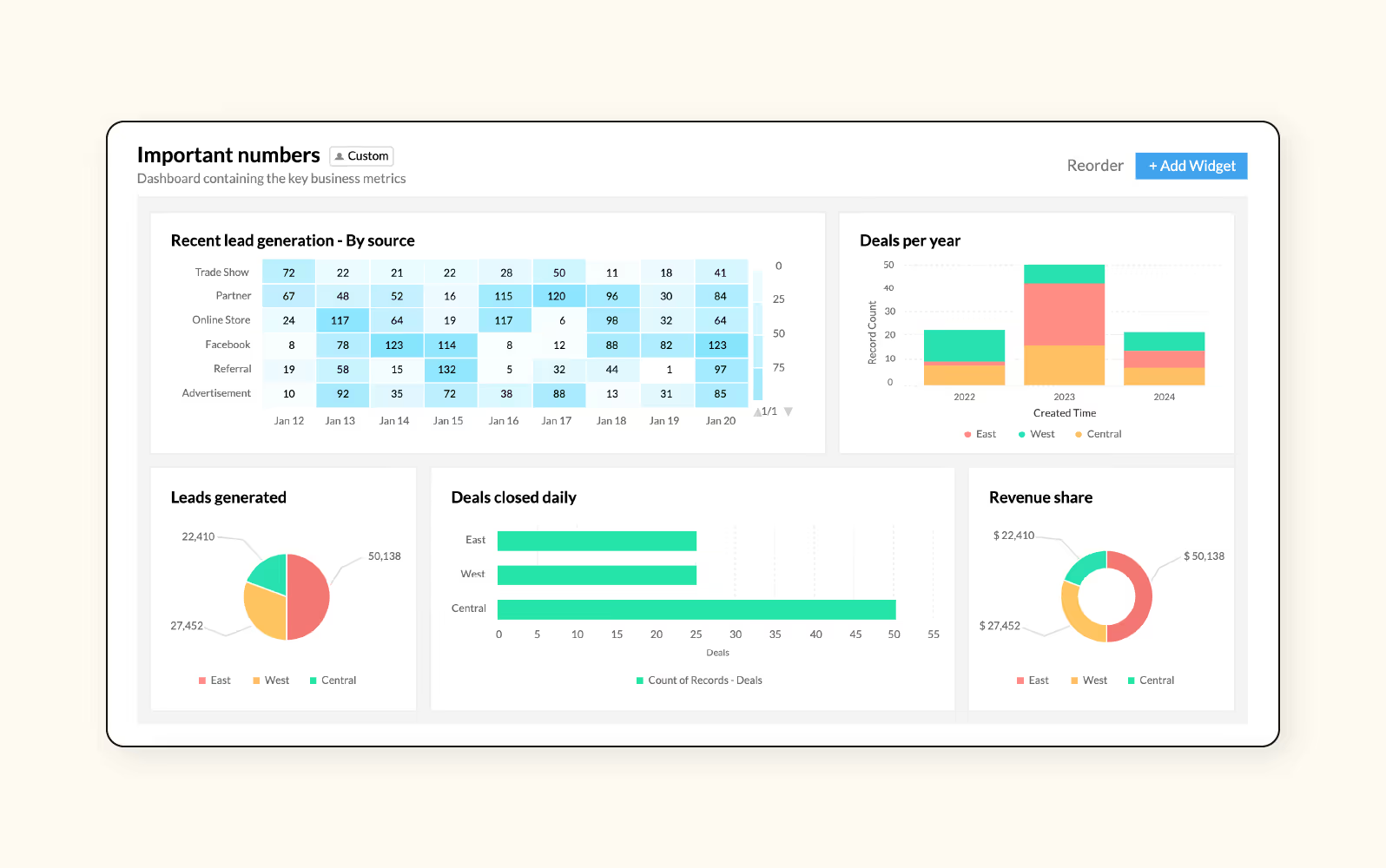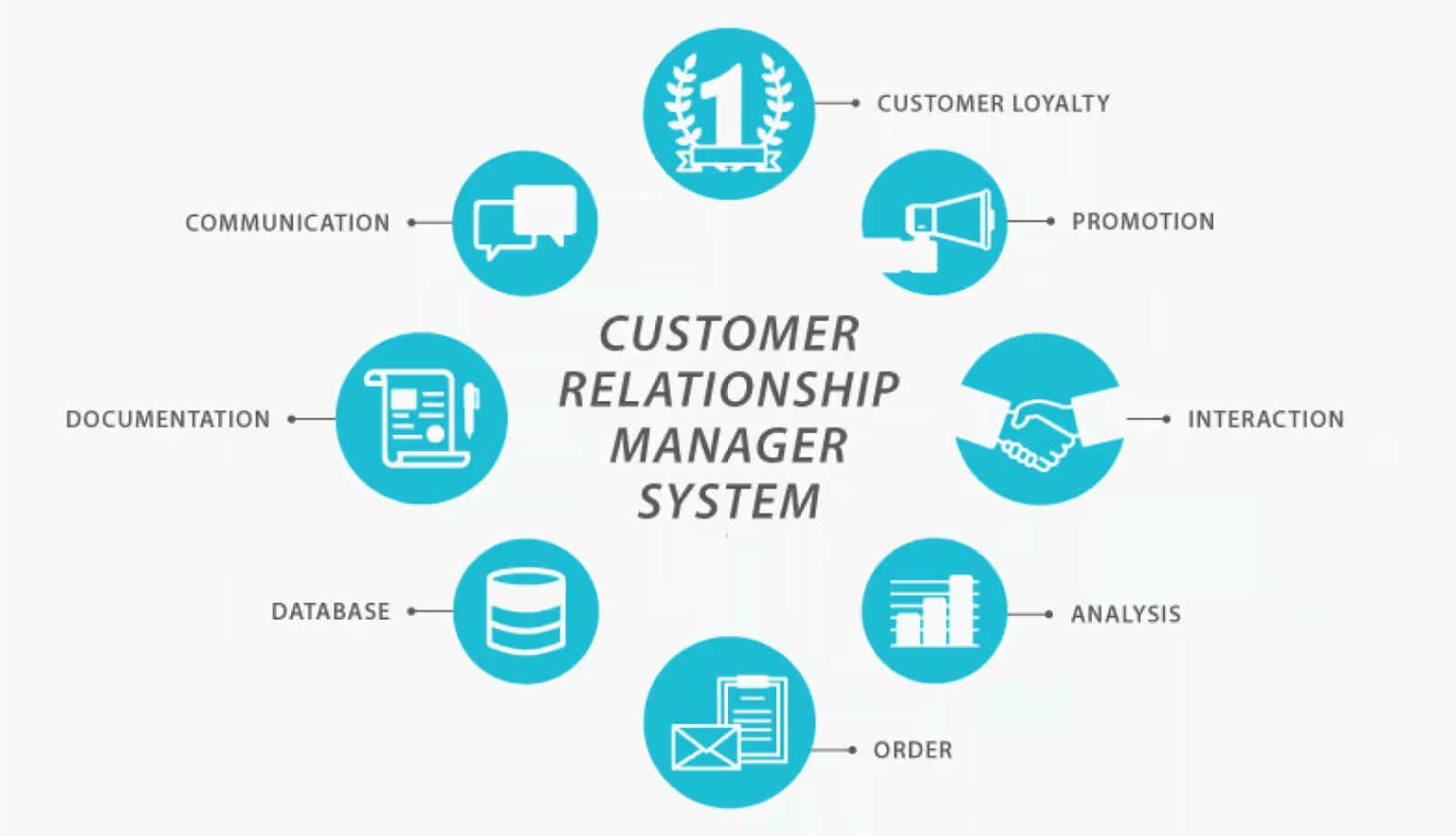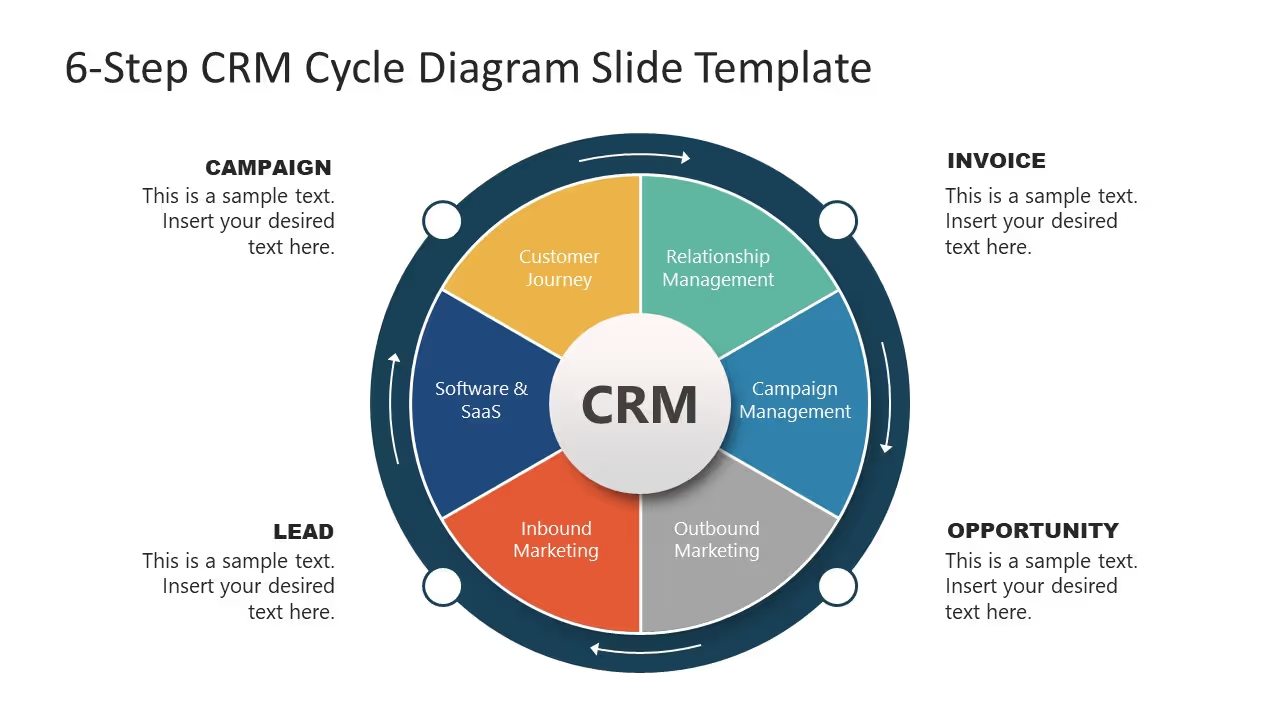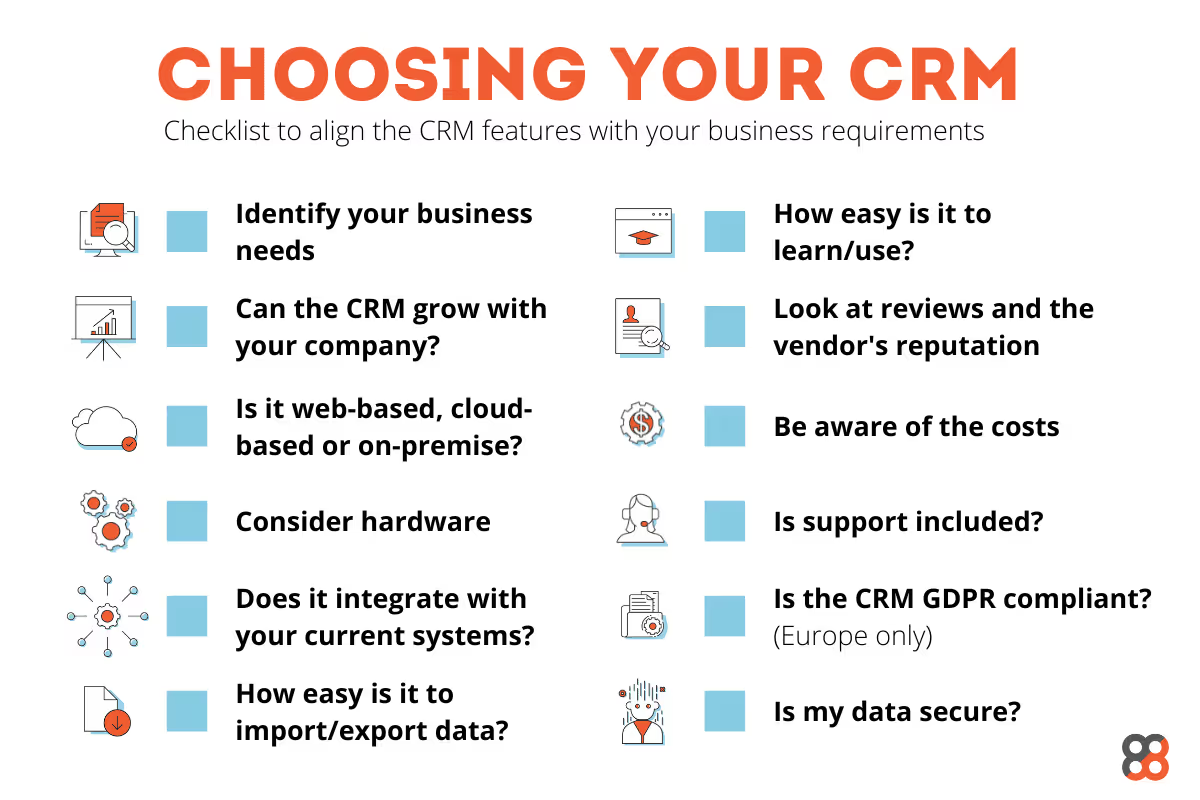Top 10 Best CRM Software for Small Business in 2025
Top 10 Best CRM Software for Small Business in 2025

Top Ten CRM Systems for Business Growth and Efficiency
Struggling to keep up with customer relationships? In today's competitive market, choosing one of the top ten CRM solutions can give you back precious time and freedom. Small business owners often find themselves trapped in a cycle of unpredictable call volumes, inconsistent messaging, and missed opportunities while personal life takes a backseat.
A good CRM system puts all your customer data in one place, handles routine tasks automatically, and provides insights when you need them.

This guide will help you pick the right CRM tool to reclaim your time and build a business that doesn't own you.

Understanding CRM Systems
Modern CRM systems create a single source of truth for all customer information. Everyone on your team sees the same up-to-date data and interaction history, helping deliver more personal customer experiences.
These systems automate routine tasks so your team can focus on meaningful work, provide real-time insights through easy-to-understand reports, and connect with your email, calendar, and other business tools. They include AI capabilities to predict customer behavior and spot trends you might miss, plus offer mobile apps so you can stay connected whether at your desk or on the go.
Criteria for Evaluating CRM Software
When choosing a CRM for your business, focus on these key factors. For specialized industries such as accounting and insurance, consider tailored solutions like CRMs for accounting firms and CRMs for insurance agents that cater to specific requirements.
Ease of Use and Integration
Your team won't use a complicated system. Look for clean interfaces, customizable dashboards, and mobile access.
Understanding CRM integration basics can help ensure your CRM connects well with your existing tools. The best systems offer API connections and ready-made CRM integrations with popular apps.
Customization and Scalability
Your business will grow and change. Your CRM should adapt with you through customizable workflows, flexible data fields, and pricing that scales as you add users.
Find the balance between customization and simplicity. Too much custom work can make systems difficult to maintain.
Cost Versus Benefits
CRM pricing varies from $10 to $300 per user monthly depending on features. Consider setup costs, training, and ongoing support alongside the monthly fee.
Weigh these against benefits like more efficient sales, better customer retention, and improved insights.
Automation Features
Automation can free up significant time by handling repetitive tasks. Look for CRMs that support sales automation strategies like lead qualification, meeting scheduling, follow-up triggers, and automatic task management.
Choose features that solve your specific challenges rather than paying for extras you won't use.

Top Ten CRM Systems
HubSpot CRM
HubSpot CRM offers a strong free tier and all-in-one approach, perfect for small to mid-sized businesses with marketing focus.
Key Features:
HubSpot provides contact management with unified customer view, visual sales pipeline, email tracking and automation, marketing automation tools, advanced reporting and analytics, and AI-powered task automation.
Pricing:
- Free tools: $0 (unlimited users)
- Starter: $15 per user/month
- Professional: $90 per user/month
Best For: SMBs looking for a user-friendly, marketing-focused CRM with room to grow. For more options tailored to the industry, consider CRMs for marketing firms.
A SaaS company using HubSpot CRM saw an 18% increase in follow-up speed and 30% improvement in lead-to-deal conversion within six months.
Salesforce
Salesforce provides deep customization for larger organizations needing tailored processes across departments.
Key Features:
Salesforce offers comprehensive customization options, AI-driven insights through Einstein AI, omnichannel communication, automated workflow builder, AppExchange ecosystem offering Salesforce AppExchange apps, and strong reporting and analytics.
Best For: Large enterprises with complex workflows and data integration needs.
A global retail brand using Salesforce reduced lead response time by 45% and increased cross-sell rates by 21% through analytics and automation.
Zoho CRM
Zoho CRM balances affordability with extensive customization for growing SMBs.
Key Features:
Zoho includes a multichannel communication hub, workflow automation, AI-powered sales assistant called Zia, sales process blueprinting, and real-time reporting.
Pricing:
- Free for up to 3 users
- Standard: $14 per user/month
- Professional: $23 per user/month
- Enterprise: $40 per user/month
- Ultimate: $52 per user/month
Best For: SMBs seeking cost-effective solutions with strong customization. An additional advantage is the ability to automate Zoho CRM with third-party tools like Zapier, improving your business operations quickly.
monday CRM
monday.com offers a visual platform that non-technical users can easily understand.
Key Features:
monday CRM features an intuitive visual interface, customizable workflows, strong visualization capabilities, and team collaboration tools.
Pricing: Ranges from $12 to $28 per user per month
Best For: Businesses that need simplicity without sacrificing functionality.
A professional services firm improved client onboarding significantly after implementing monday CRM.
Nimble
Nimble stands out with strong social media integration for socially active businesses.
Key Features:
Nimble provides unified contact management across channels, social media engagement tools, and relationship intelligence automation.
Pricing: $24.90 per user/month
Best For: Small businesses using social media for customer engagement. For e-commerce and retail shops, there are dedicated CRM platforms for e-commerce that cater to their specific needs.
Pipedrive
Pipedrive focuses on sales with an intuitive pipeline view for clear process visibility.
Key Features:
Pipedrive offers visual sales process management, activity-based selling methodology, email integration, and mobile accessibility.
Pricing: Starting at $14.90 per user/month
Best For: Sales-driven organizations wanting a straightforward, pipeline-centric CRM.
Freshsales (Freshworks)
Freshsales uses AI to improve sales automation and efficiency.
Key Features:
Freshsales includes AI-powered lead scoring through Freddy AI, built-in phone and email tracking, visual sales pipeline, and customizable reports and dashboards.
Pricing: Free plan available; paid plans start at $15 per user/month
Best For: Businesses looking to use AI for sales process optimization.
CliqStudios implemented Freshsales CRM and saw sales processes accelerate by 35%.
Salesmate
Salesmate focuses on relationships for small businesses, balancing functionality and ease.
Key Features:
Salesmate provides sales sequences, built-in calling capabilities, email sync, and pipeline management.
Pricing: Starting at $12 per user/month
Best For: Small businesses prioritizing relationship management and sales automation.
Creatio CRM
Creatio excels in process automation with a low-code platform for custom workflows.
Key Features:
Creatio offers low-code automation tools, unified marketing, sales, and service platform, industry-specific solutions, and business process management.
Pricing: Starting at $25 per user/month
Best For: Companies looking to automate complex business processes across departments.
Less Annoying CRM
Less Annoying CRM offers a straightforward solution for very small businesses.
Key Features:
Less Annoying CRM includes simplified contact management, basic task tracking, calendar integration, and an intuitive interface with minimal learning curve.
Pricing: $15 per user/month (single plan)
Best For: Micro-businesses and solopreneurs needing a no-frills CRM solution.
AI-Powered CRM Innovations
AI is changing how CRMs help manage customer relationships in several key ways:
Predictive Lead Scoring
AI-powered CRMs, equipped with advanced AI lead management tools, analyze history to predict which leads are most likely to buy, helping sales teams focus their energy on the right prospects.
Intelligent Customer Service
AI improves support through 24/7 chatbots, natural language processing to understand questions, and smart ticket routing to get issues to the right people.
Modern AI CRMs maintain conversation history across all channels, creating complete customer profiles that help you provide consistent service and improve customer experience automation.
These innovations help small businesses compete with larger organizations by using AI-first call centers and support systems.
Customer Journey Insights
AI helps track and improve customer journeys by analyzing touchpoints and identifying sticking points. This level of insight improves customer experience automation, leading to better customer satisfaction.
Industry research shows that journey-mapped customer experiences can increase retention rates by up to 50% and significantly improve engagement and sales.
Sales Process Enhancement
AI improves selling through guided next steps, opportunity scoring to prioritize promising deals, and more accurate forecasting. The impact of AI in sales cannot be overstated.
The foundation of all customer relationships and customer engagement relies upon an organization's security and customers putting their trust in the organization. As you implement AI capabilities, prioritize data quality and privacy to maintain customer trust.
Choosing Your Perfect CRM
The right CRM becomes more than software. It gives you back control of your time and business.
Focus on what truly matters for your business: ease of use, customization options, cost structure, and automation capabilities.

The best CRM improves your team's work without adding complexity.
Think about how your CRM will fit into existing workflows and support long-term goals. The right system should solve today's challenges and grow with your business.
For many small business owners, the right CRM means freedom from being constantly tethered to their business. It means catching your child's school play without worrying about missed opportunities. It means confidently taking a weekend off knowing nothing important will fall through the cracks.
Remember those initial frustrations that led you here: unpredictable call volumes, inconsistent messaging, and the feeling that your business owns you rather than the other way around. The right CRM system can help address these challenges, giving you back the time and freedom that inspired you to start your business in the first place.
Book a free consultation to explore options for integrating CRM solutions with your communication strategy.
Take the faster path to growth. Get Smith.ai today.
Key Areas to Explore

Your submission has been received!













.svg)



